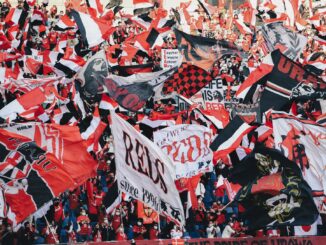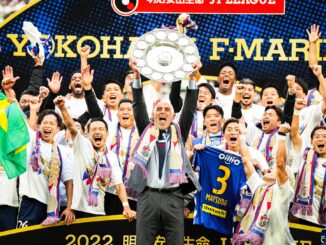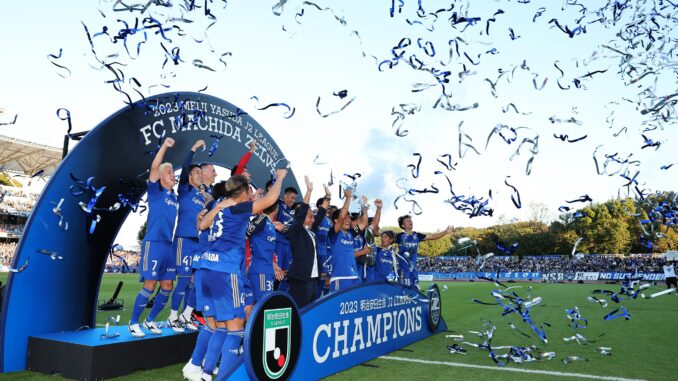
In most big cities across the world there are those suburbs on the fringes that kind of get lost to the more brash or tawdry districts, the places that tourists rarely visit and locals probably don’t choose to put down roots if they have a choice.
Machida is one of those places in Tokyo.
Stuck right on the very southern edge of the capital, Machida itself is far closer to Yokohama than central Tokyo and often associated more with that area.
Rapid development over the past half a century has seen the population swell to almost half a million, but it’s a classic suburban commuter town, replete with the small shotengai that run off most similar places in Japan, a tiny rabbit warren of drinking dens and even its own red-light district.
Close your eyes and you could be lost in suburban Sendai, Osaka, Kobe or Nagoya; it’s pleasant enough but equally the same kind of undistinguished place that you find in mid-to-large sized Japanese cities all over the country.
The image of Machida might be about to get a real boost though with the local football team, FC Machida Zelvia, about to compete in the top tier of Japanese football for the first time in 2024.
It’s worth noting at this point that so keen were the new owners on shaking off the image of their suburban club that they attempted to change the name to incorporate Tokyo in the title but that was roundly denounced by their supporters and thus shelved.
That new ownership group – the Japanese media, advertising and gaming giant CyberAgent – took over the club ahead of the 2019 season and within five years they’d helped them reach the top tier of Japanese football after spending the previous decade down in J3 and J2.
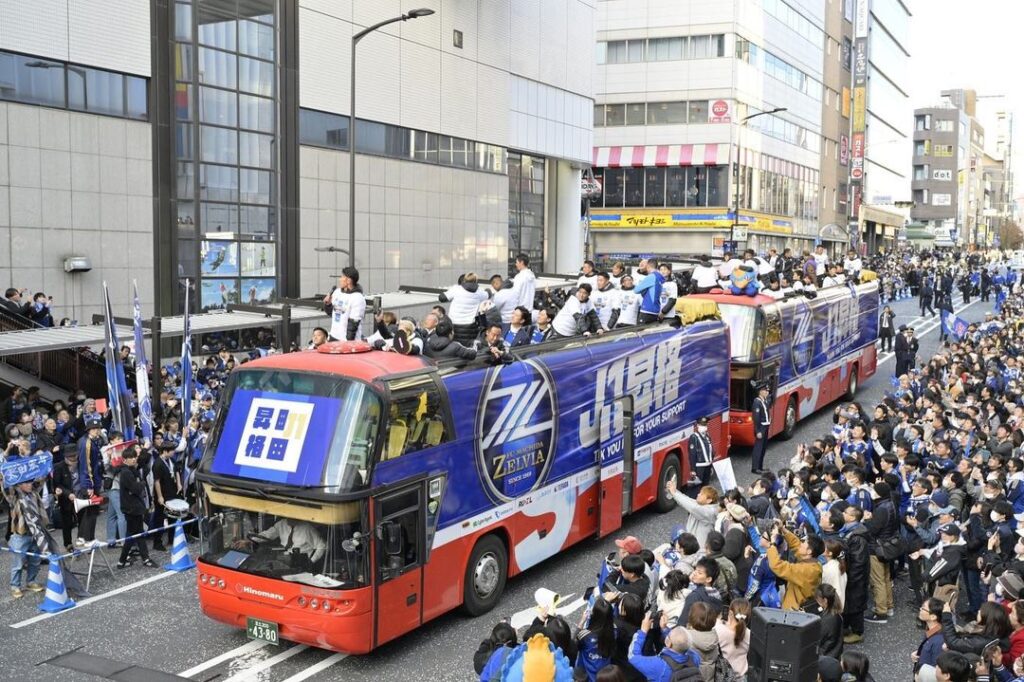
As with most of these cases it’s easy to pin the recent success on the wealthy new owners (CyberAgent CEO Susumu Fujita was last year listed among Japan’s 50 richest people with a net worth of some $970 million) and a capital surplus that was more than double any other team in J2 certainly doesn’t hurt things.
The purse strings have been fully loosened ahead of their first season in the top flight with the outstanding young keeper Kosei Tani arriving on loan from Gamba Osaka via a spell in Belgium, former Japan defender Gen Shoji comes in from Kashima, Korean international winger Na Sang-ho was brought in from FC Seoul and Kosovo international Ibrahim Dresevic is another headline addition to the squad, along with vastly experienced J.League players in the shape of Keiya Sento (from Kashiwa Reysol) and Kai Shibato (via Urawa Reds) who could thrive in more prominent roles.
That in addition to the existing talent at the club, which includes reigning J2 Player of the Year Erik, current Australia international Mitch Duke and some outstanding young stars led by the vibrant forward Yu Hirakawa and the brilliant 20-year-old midfielder Zento Uno (part of the title-winning Aomori Yamada high school side two years ago alongside FC Tokyo’s Kuryu Matsuki) who very much has the appearance of a future national star.
What’s also really helped is a totally left-field coaching appointment, the kind rarely seen in any league and one without precedent in terms of its immediate success.
It was Uno’s former high school coach at Aomori Yamada, the dominant force in recent years in the massively popular high school football ranks, Go Kuroda who was at the helm last year as Zelvia secured that historic promotion.
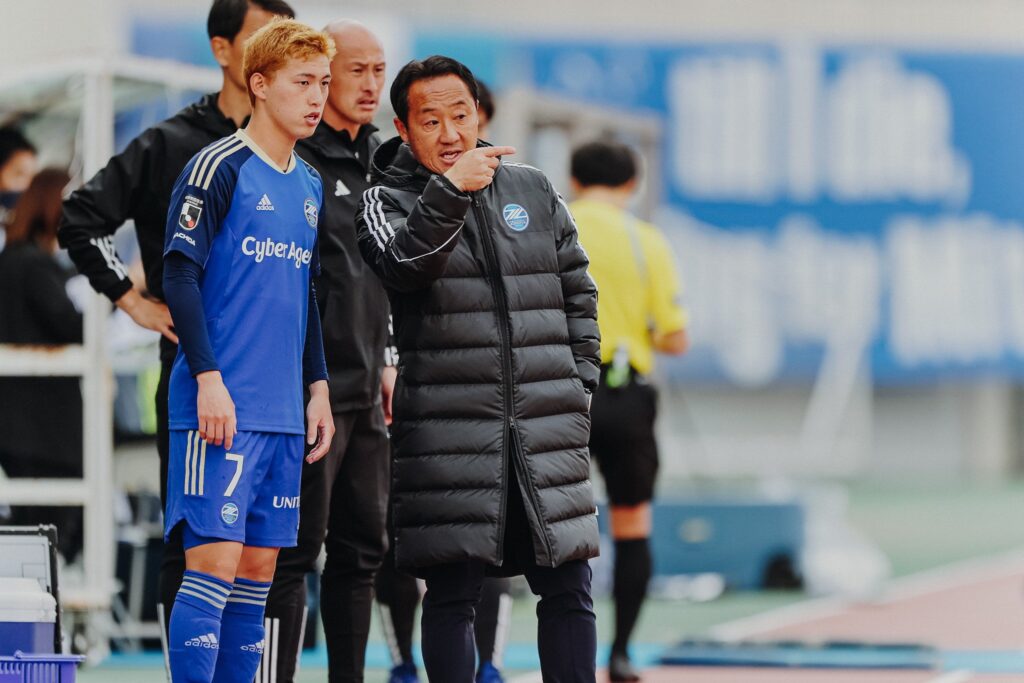
Now 53, Kuroda had spent an astonishing 26 years at Aomori Yamada, guiding the school to the national championship finals every season since 1997 and winning three titles along the way while helping to produce J.League and national stars, led by midfielder Gaku Shibasaki.
Having delivered the school their third national title in early 2022 he stepped down from that role and was appointed the new Machida coach ahead of the 2023 season.
It was a frankly amazing campaign, with the team starting strongly and then going top from matchday ten onwards where they were never caught, eventually winning the league by a whopping 12 points.
Born in the snowy north of the country and then with that 26-year stint in the equally harsh northern city of Aomori, Kuroda’s football resembles the type you’d expect from a place whose winters are long and unrelenting.
In a book he published in 2017, Kuroda spoke of his admiration for ‘snow football’ where he’d organise spartan-style ‘matches’ that involved two teams of 50 players, with three balls and the players running often waist deep in snow until two goals were scored. The losing team would then have to run 400 metres through more deep snow on an adjacent field.
He did this, he explained, to build both determination and physical fitness, and in a bid to occasionally escape these sessions he went and got a bus drivers licence and then spent a year driving the team more than 7,000 kilometres across the country to play practice games.
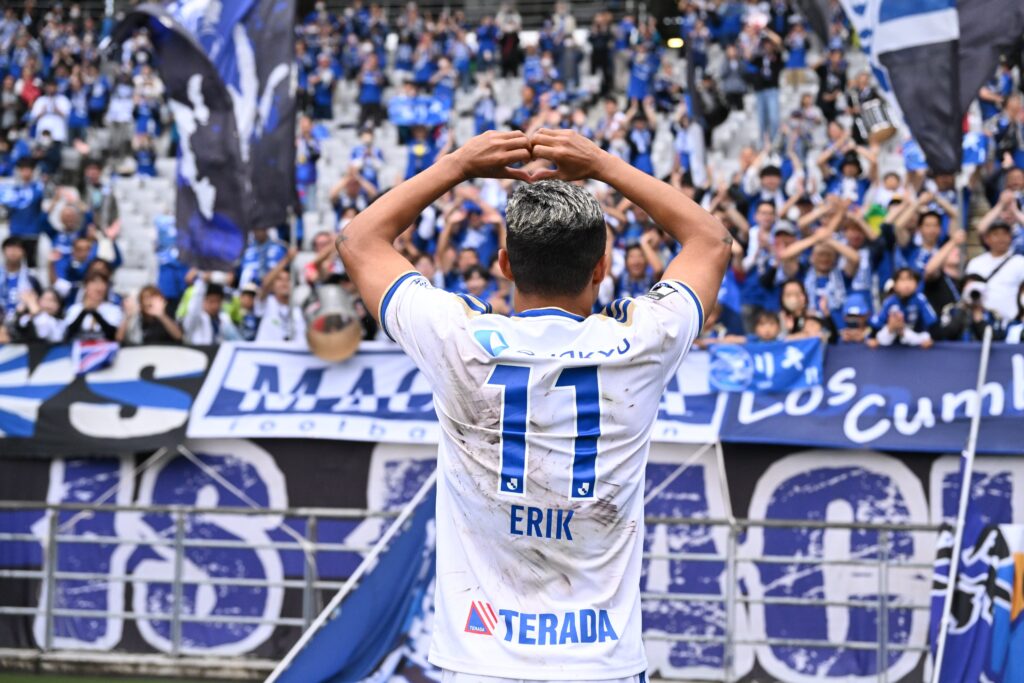
It’s little surprise then that the type of football he’s overseen, both at Aomori and now at Machida, is built heavily on off-the-ball qualities, with a piercing focus on both mental and physical application.
In many ways, it’s the kind of football that Japan, and elsewhere, has largely gone away from.
The team is not at all shy to play long and direct, both on the ground and from throw-ins, and with their physical, pressing qualities the chances are there for short counters that the likes of Erik, Hasegawa and Duke should thrive on even in the top flight.
Pretty it may not always be but it’s incredibly functional and Machida will be the kind of team that most other clubs both don’t often see and don’t enjoy playing against.
Twice in the J.League era has a club won the second tier and then gone on to win J1 the following season (Kashiwa in 2011 and Gamba in 2014) and while it’s perhaps unlikely it’s not out of the realms to see Machida make it a third such club to do so.
If they start strongly and remain in the hunt in the summer, the spending from their wealthy owners could be taken up another level and that might be enough to power them home.
Kuroda, whose only jobs since his teenage years have been a brief stint working in a hotel and then back at a high school, has the look and the determination of being just the kind of coach to lead this unfancied club from an unfashionable part of the world’s biggest city to the unlikeliest of success stories in 2024.
Photos: J.League / Machida Zelvia


